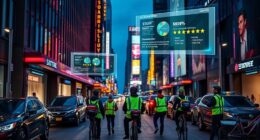
A Conversation with Harvard Law Professor and Internet Policy Expert
In a special interview with Lawrence Lessig, a well-known Harvard law professor and internet policy icon, we explore the connection between free speech, the internet, and democracy. With more than three decades of teaching experience at top universities and a successful career as an author, Lessig is a leading authority in this area.
Decoder Crew’s Glitzy Affair
Last week, the Decoder crew had the privilege of attending the launch event of Harvard’s new Applied Social Media Lab, where Lessig is involved. The star-studded event was set to feature former President Barack Obama as a guest speaker. Unfortunately, due to illness, President Obama had to cancel his appearance. However, Lessig stepped in and graciously shared his insights on the pressing issues the lab aims to address.
The Internet’s Disinformation Epidemic
Lessig and the Decoder host, Nilay Patel, acknowledge the overwhelming amount of disinformation, misinformation, and toxic content that plagues the internet today. They both agree that this poses a significant threat to individuals and the future of democracy. However, their views diverge on how to combat this issue.
First Amendment Challenges
The United States’ First Amendment provides strong protections for free speech, making it difficult for the government to regulate even outright lies, as seen during the Covid-19 pandemic and the 2020 election. However, to address the demand for content removal, alternative strategies have emerged that circumvent the First Amendment. One such method is leveraging copyright law to regulate speech on the internet. Lessig and Patel explore the implications of this approach, focusing on the controversy surrounding react videos on YouTube.

The Role of Artificial Intelligence
Artificial intelligence (AI) plays a pivotal role in shaping our online experiences. Lessig and Patel dissect two types of AI that have a profound impact on our cultural landscape. Algorithmic AI powers the recommendation engines on social platforms, aiming to keep users engaged. On the other hand, generative AI poses risks for the spread of misinformation. The conversation delves into the complexities of tackling this issue, leading Lessig to suggest a radical solution: moving politics offline.
A Thought-Provoking Conversation
This in-depth discussion with Professor Lessig covers a wide range of topics and offers unique perspectives on the challenges that arise at the intersection of free speech, the internet, and democracy. Despite its informal nature, the conversation leaves listeners with plenty to ponder.
Listen to the full interview on Decoder, hosted by Nilay Patel from The Verge, for a deep dive into these pressing issues.










